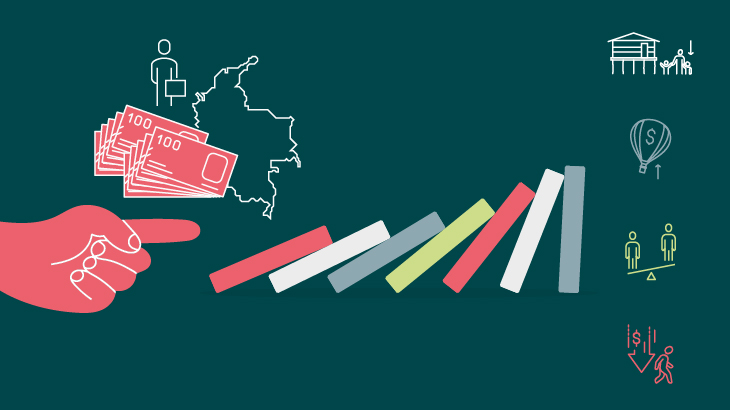Using partial equilibrium and general equilibrium approaches, the effects of the minimum wage on the Colombian macroeconomy are thoroughly studied. With the first approach, the article analyzes the effects on variables of the labor market, income distribution, inequality, monetary poverty of families, prices, and inflation. With the general equilibrium approach, we study the effects on consumption, welfare, production, investment, inflation, and government fiscal accounts. According to the evidence, the minimum wage has negative effects on almost all the variables studied, it does not allow a fluid functioning of the labor market, and it is not fulfilling its objectives of contributing to reducing inequality and poverty. The redesign of the implementation of the minimum wage in Colombia and the way in which we are training our workforce to raise its productivity is suggested, so that we can bring the minimum wage in relation to the median wage of the economy, nowadays about 90 %, at a level similar to that of the OECD countries, close to 50%.





 Jesus Boteroe,
Jesus Boteroe,  Edgar Caicedo-Garcíaa,
Edgar Caicedo-Garcíaa, 


 Alexander Guarín-Lópeze,
Alexander Guarín-Lópeze, 
 Didier Hermida-Giraldoa,
Didier Hermida-Giraldoa,  Juan Manuel Julio-Romána,
Juan Manuel Julio-Romána, 
 Nicolás Martínez-Cortésa,
Nicolás Martínez-Cortésa,  Juan Camilo Méndez-Vizcaínoe,
Juan Camilo Méndez-Vizcaínoe, 

 Karen L. Pulido-Mahechaa,
Karen L. Pulido-Mahechaa, 
